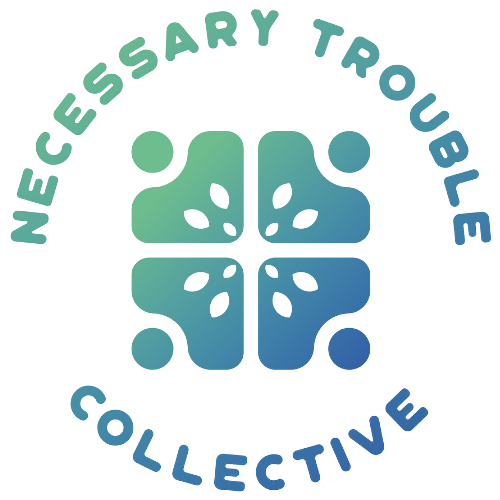DAY 26: Give up being silent when you witness racism in all white spaces
You’re at Thanksgiving dinner and your uncle insists on telling a racist joke. A few people laugh, some stay silent and some pretend they didn’t get the joke. All of these reactions serve to enable racism because in most people’s minds silence or playing along equals agreement. In addition, these reactions do nothing to support awareness for those who don’t understand the harmful impact of covert racism.
There are many reasons why white people stay silent when in a group of only white people. It can range from wanting to honour elders, to wanting harmony, to not wanting to become the target of teasing or anger. This is especially true if you have an identity that is marginalized in all white spaces such as being female identified, gender nonconforming or someone who lives with a disability.
TIP: Navigating these conversations in a way that upholds the humanity and dignity of everyone requires skill. There are a few different dialogue models and techniques, including Nonviolent Communication, that you can learn. The core basics of these models are:
Try to imagine the motivation of the person who made the comment/joke and acknowledge it. For example, “Hey Uncle Ralph, I wonder if you were hoping to reduce the tension in the room with that joke”?
Share your own story of a time when you did or said something similar - i.e., “Last year when I was at a friend’s for dinner, I told a joke like that because I was feeling a little anxious and wanted to lighten the mood.”
Share your learnings about why what you said or did was not in alignment with your values. “Unfortunately, I did not think through how the joke denigrates Black people and therefore doesn’t align with my values. It also upset people that I really care about.”
Share the impact of the joke on you “I felt uncomfortable hearing your joke because it upholds a racist stereotype about Black men and strips them of their humanity. And because I know you care about everyone’s dignity, I don’t think that joke aligns with your values either.”
Offer an alternative. “Now I am careful to think about jokes before I share them to ensure that the punchline does not denigrate anyone. Amusing anecdotes about my cat seem to do the trick!”
There are excellent trainings focused specifically for white people to help them talk to other white people about racism. See our website for more information.
RESOURCES:

